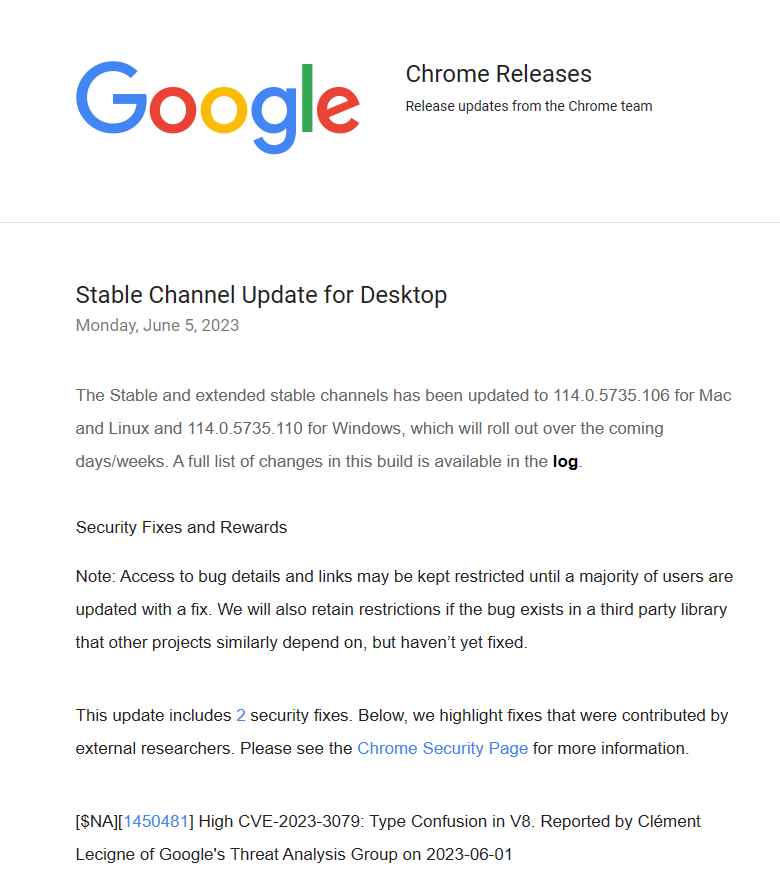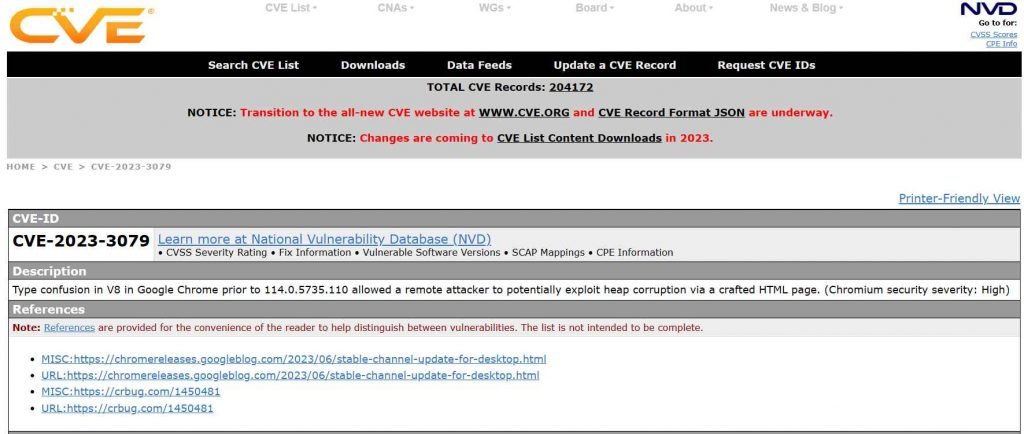The most widely used web browser in the world, Google Chrome, has been found to have a critical zero-day vulnerability that has been actively exploited in the wild. Confirming the severity of the danger, Google rapidly sent fixes to desktop versions of the Chrome browser on Tuesday in order to close the security vulnerability discovered in the browser.The detected vulnerability, which has been given the official identifier CVE-2023-3079, causes cause for concern owing to the possibility that threat actors would exploit it. The problem originates from what is known as a “type confusion” in the V8 open-source JavaScript engine that Google created specifically for the Chrome web browser. In essence, type confusion may lead to the program incorrectly interpreting the data type that it is processing, which can result in unexpected and possibly hazardous actions, such as unauthorized access to the system or the leaking of sensitive information.

The fact that the vulnerability was being actively abused in the wild lends an ominous tone to the recent discovery, despite the fact that it is a relief that the vulnerability has been uncovered. Actively exploited zero-day vulnerabilities are a top-tier hazard in the cyber world. This is due to the fact that they offer real-world threats before developers have the chance to prevent them. “Google is aware that an exploit for CVE-2023-3079 exists in the wild,” the company notes. “Google is working to address this issue.”
Clément Lecigne, a member of Google’s Threat Analysis Group (TAG), is the one who is credited with discovering the vulnerability. The Threat Analysis Group (TAG), which is comprised of Google’s most accomplished security experts, has been in the vanguard of Google’s efforts to detect and combat cyber threats. On June 1, 2023, Lecigne, who is known for his expertise in cyber forensics, disclosed the vulnerability.

As a direct reaction to this imminent risk, Google has distributed updated versions of Chrome for a variety of operating systems. Users are strongly encouraged to upgrade their Chrome browsers to version 114.0.5735.106 for macOS and Linux, and version 114.0.5735.110 for Windows. These updates are available at https://chromium.google.com/. It is imperative that you give this update a high priority in order to maintain the highest level of browsing safety possible.
Users of other browsers based on Chromium, such as Microsoft Edge, Brave, Opera, and Vivaldi, should heed this warning as well. Because their basic code is similar, it’s possible that both of these browsers are subject to the same issue. As a result of this, users are highly encouraged to install fixes as soon as they become available in order to protect themselves from any possible dangers.

Working as a cyber security solutions architect, Alisa focuses on application and network security. Before joining us she held a cyber security researcher positions within a variety of cyber security start-ups. She also experience in different industry domains like finance, healthcare and consumer products.











